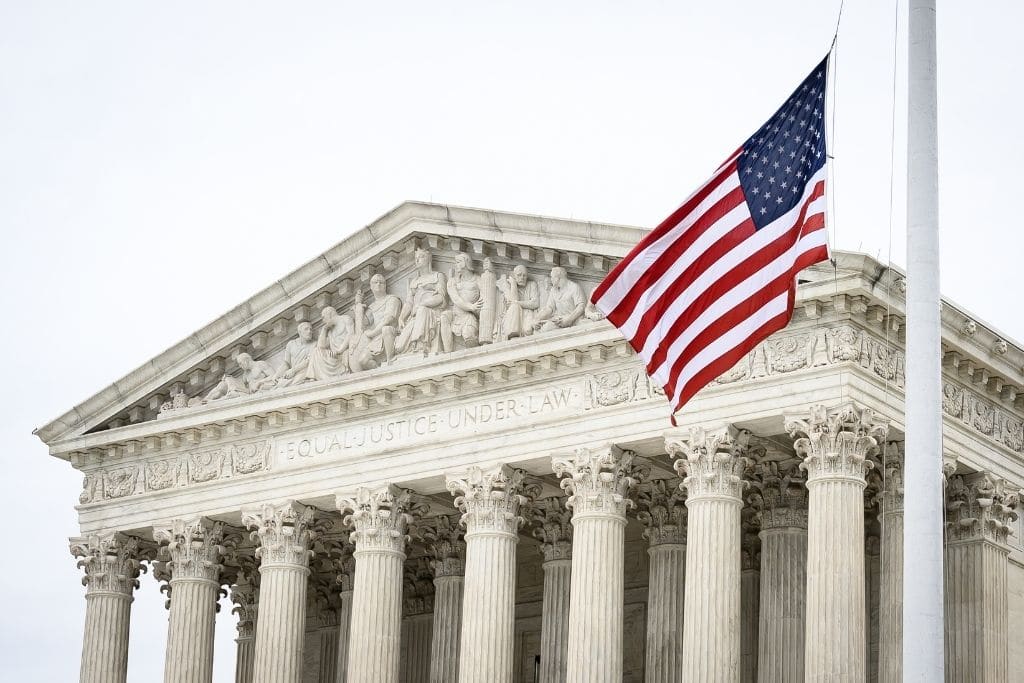In a historic and far-reaching decision, the US Supreme Court curbed the ability of the Environmental Protection Agency (EPA) to regulate carbon emissions from existing coal- and gas-fired power plants under the landmark Clean Air Act anti-pollution law. Seen as a major defeat of the Biden administration’s attempts to cut emissions, the ruling sent shockwaves across the federal government and raised alarm overseas.
—
On Thursday, the US Supreme Court’s conservative majority struck down a key EPA tool for regulating greenhouse gas emissions under the Clean Air Act. The West Virginia v. EPA case was brought by coal companies and Republican-led states who claimed the Agency did not have the authority to regulate carbon emissions.
Chief Justice John Roberts – one of six judges constituting the conservative majority – said the agency overstepped its authority with rules to cut power plants’ planet-warming pollution. The Court concluded that Congress’ directive to EPA to regulate power plants emitting any pollution that “may reasonably be anticipated to endanger public health or welfare” using the “best system of emission reduction” could only apply to things “like scrubbers on smokestacks” and not a regulation designed to shift electricity generation away from coal to cleaner power sources.
The Supreme Court EPA ruling thus strikes at the heart of the ability of the federal agency to carry out the will of Congress via rule-making, neutralising the power of experts, scientists, and subject matter specialists who actually regulate the industry for the benefit of all.
The US is the world’s second-largest emitter of greenhouse gases after China. Coal – by far the dirtiest fossil fuel – accounts for 20% of the country’s electricity and it is responsible for a surge in emissions last year, the first time these increased in almost a decade.
In a statement on the controversial ruling, President Biden condemned the ruling as a “devastating decision that aims to take our country backwards”. He pledged to “take action” and said he would pursue all legal options to address “the danger to public health and existential threat the climate crisis poses.”
Liberal Justices Kagan, Breyer, and Sotomayor, blasted the ruling, claiming in their dissent that “the Court strip[ped] the Environmental Protection Agency (EPA) of the power Congress gave it to respond to ‘the most pressing environmental challenge of our time.’”
The Supreme Court’s decision also raised alarm overseas, with voices across Europe and Asia emphasising that the US must meet its international obligations to take action on climate change. In a statement, UN Spokesperson Stéphane Dujarric described the Supreme Court EPA ruling as “a setback in our fight against climate change”.
You Might Also Like: How the US Can Achieve Net-zero Emissions


















